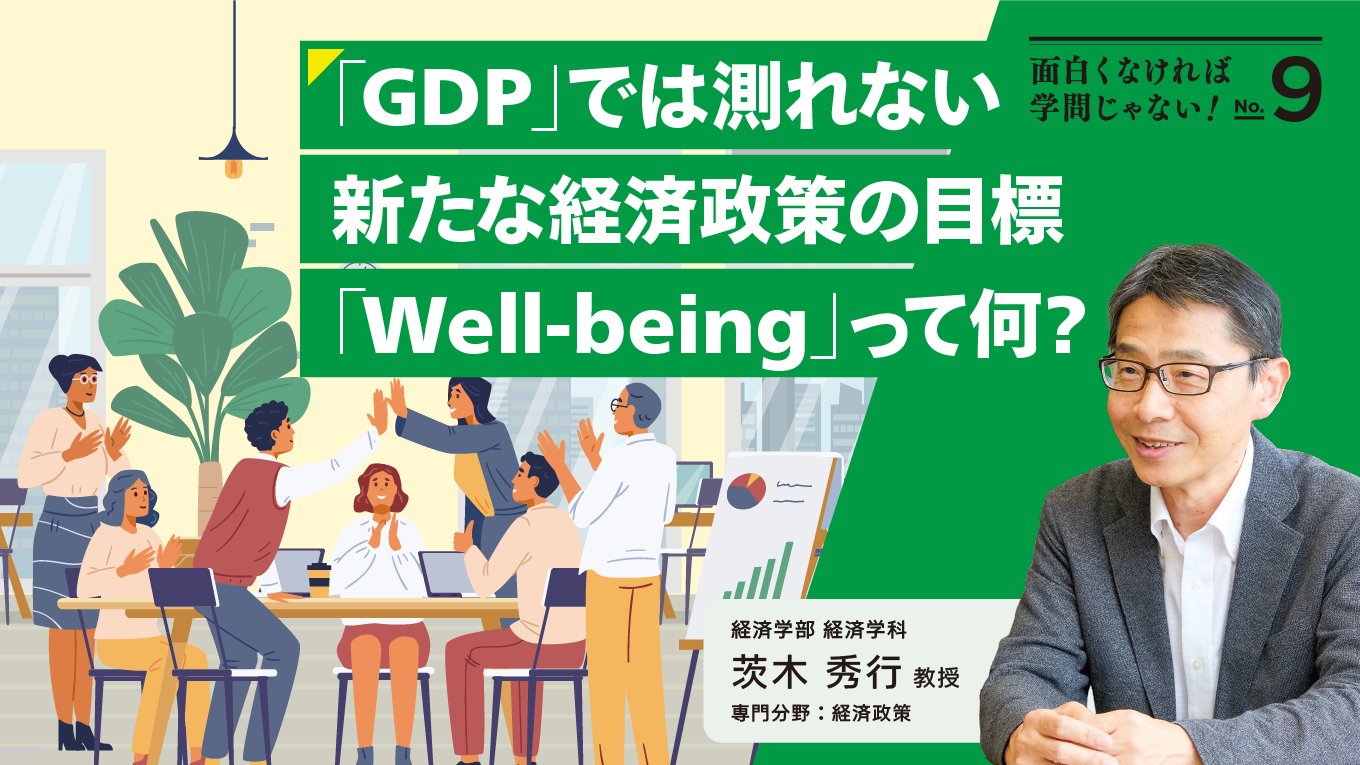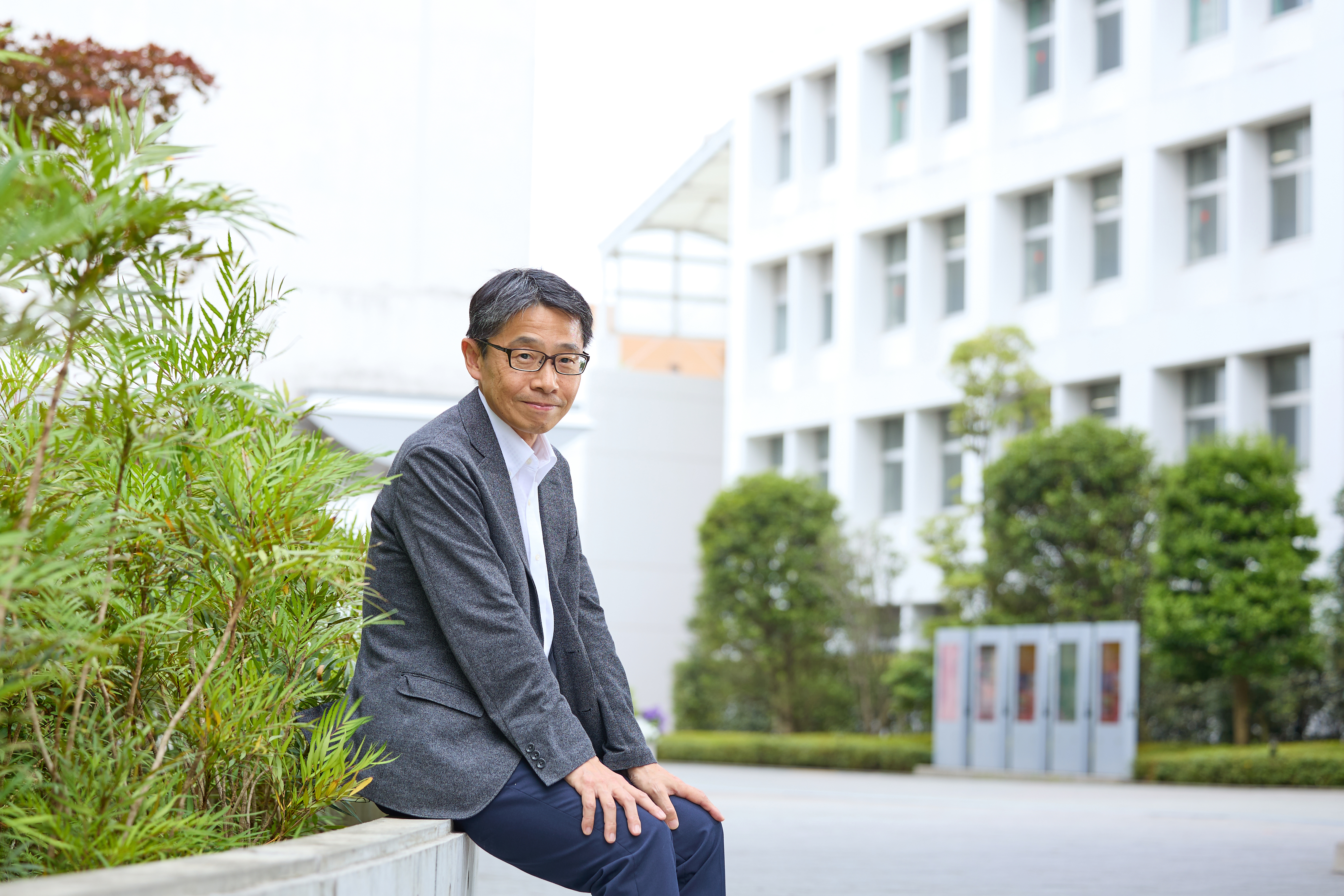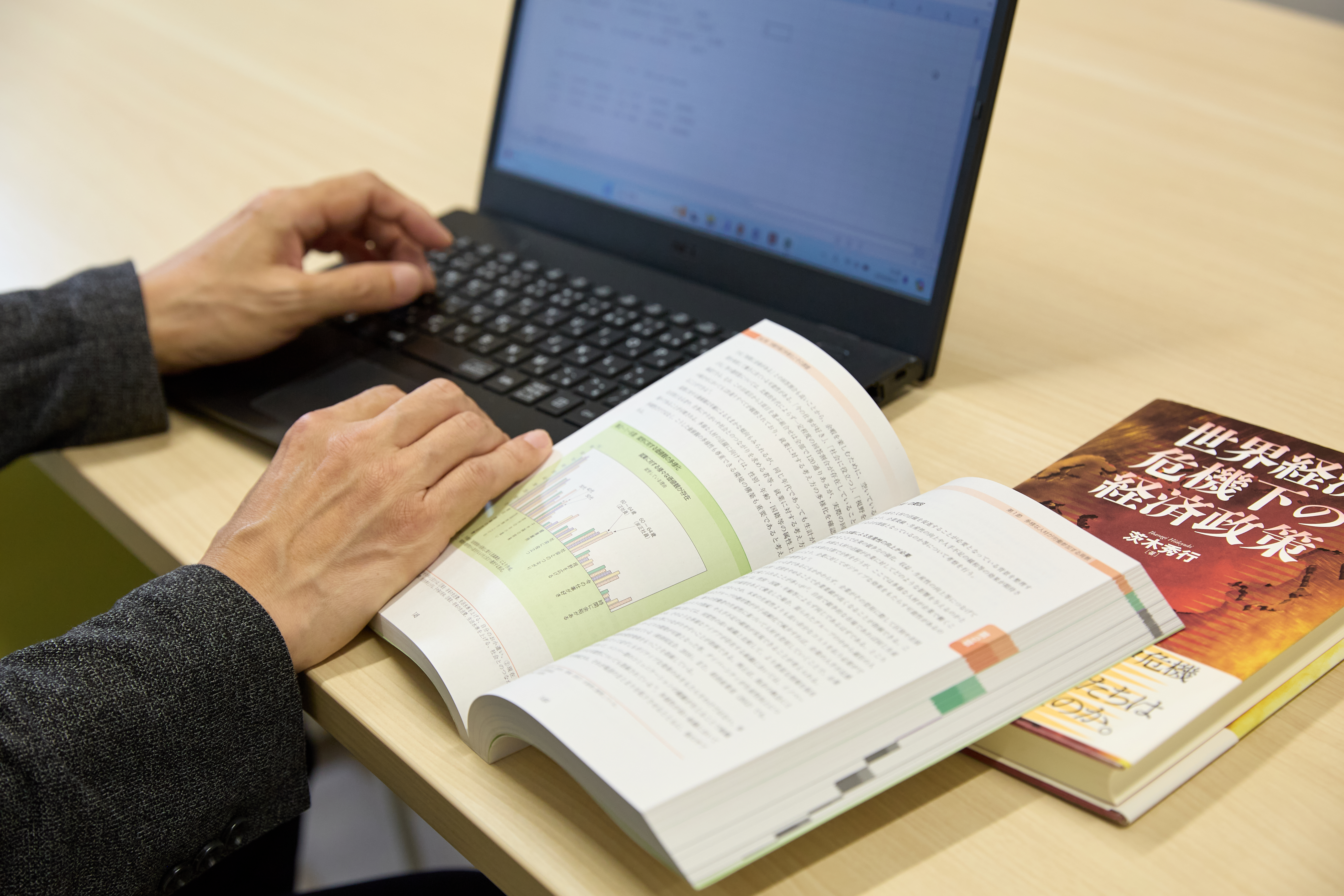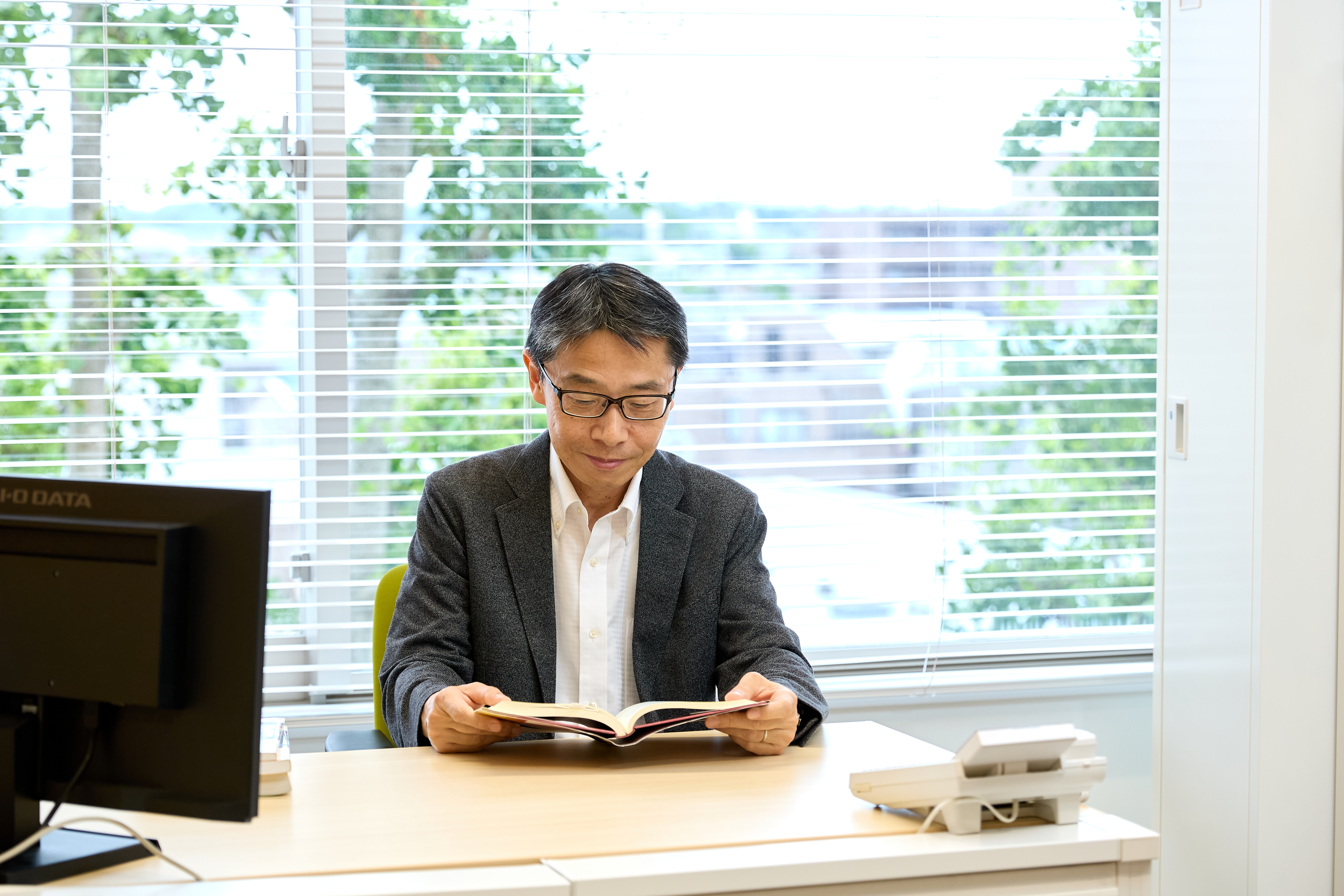
It cannot be measured by "GDP"
New economic policy goals
What is "well-being"?
New economic policy goals
What is "well-being"?


#Asia University research
IBARAGI Hideyuki Professor
Faculty of Economics Department of Economics
2024.09.01
In the series "If it's not interesting, it's not academia!", we introduce research content and anecdotes of faculty members at Asia University. The ninth installment features Professor IBARAGI Hideyuki of Faculty of Economics, Department of Economics.

I want to use the economics I learned at university to work to create a prosperous society.
During his time as an economic bureaucrat, he studied at Graduate School in the UK and earned Master’s Degree, and later served twice at the OECD (Organization for Economic Cooperation and Development), which is headquartered in Paris, France.
During my second posting to the OECD in 2009, I was assigned as Counsellor at the Permanent Mission of Japan to the OECD, where I played an important role in reflecting the government's intentions in OECD discussions. I was mainly in charge of economic policy and statistical work at the OECD, and that's when I came across the OECD Statistics Department's initiative on "well-being," or the creation of indicators to measure happiness and life satisfaction.
My first encounter with "Well-being" was at the OECD headquarters in Paris

At the same time, in 2008, the world economy was hit by a major shock. The collapse of the American investment bank Lehman Brothers triggered the "Lehman Shock," which developed into a global financial crisis and a major recession. This event also demonstrated the limits of the economic policies based on "neoliberalism," which had been the driving force behind globalization and the trust in market economy mechanisms up until that point.
In response to this situation, there was a growing momentum to reconsider economic policies that had previously focused on increasing GDP growth rates, and the perspective of "well-being" began to attract global attention as a new policy goal. The OECD also developed the Better Life Index (BLI) in 2011 based on the Stiglitz Commission report.
However, not all OECD member states supported the "Well-being" initiative from the beginning, as there was resistance to introducing a highly subjective, individual value such as "happiness" into an economic indicator that should be objective.
However, it was clear that the traditional "economic growth supremacy" was no longer working. For this reason, the Japanese government actively supported the OECD's "Well-being" initiative from the early stages. The administration at the time also considered improving happiness an important policy goal and set out to work on creating indicators to achieve this. As a member of the Japanese Government Delegation to the OECD, I was in close contact with people at the OECD Statistics Office and became deeply involved in the launch of the BLI, including through the provision of research funding from the Japanese government.
Since the BLI, other international organizations have also stepped up their well-being initiatives. The United Nations has published the World Happiness Report every year since 2012, and is also considering an economic indicator called "Beyond GDP" to replace GDP. To date, 35 OECD member countries, including Japan, have been working on measuring well-being. This growing global attention to well-being is deeply moving for me, as I have been deeply involved in this issue at the OECD since its early days.
In a society with a declining population, work style reform that enhances "well-being" is the key

There are two methods for measuring "well-being": using objective indicators and measuring subjective satisfaction and happiness through individual questionnaire surveys. The OECD's "BLI" is the former, while the "Survey on Satisfaction and Quality of Life" conducted annually by the Japanese government (Cabinet Office) since 2019 mainly corresponds to the latter.
In the 2023 "Satisfaction and Quality of Life Survey," we also surveyed how people feel about their jobs, including how rewarding they are, in light of the increasing number of companies that are working on work style reforms to retain employees amid a labor shortage. The survey showed that people who feel "rewarded" at work have higher satisfaction rates than those with an annual income of less than 3 million yen who feel their work is rewarding, and that they have higher satisfaction rates than those with an annual income of 7 million yen or more who do not feel their work is rewarding. In this way, it has been shown that the perspective of well-being that increases "rewarding" can also be useful for corporate human resource management.
The BLI survey results also show that Japanese people rank low in the world in terms of work-life balance and social connections. This is thought to be because the percentage of people working long hours is higher than the average for OECD member countries. Many studies have shown that building good relationships through interactions with acquaintances and local people has a significant impact on health and happiness, but a work-centered life tends to weaken social connections. Although there is a tendency for work-life balance to improve due to research recent "work style reform" and the establishment of flexible working styles such as remote work in the wake of the COVID-19 pandemic, it is necessary for the government and private companies to continue working together. In a society with a declining population, the perspective of "well-being" will become increasingly important in terms of employment and human resources in order to make the most of the scarce labor force.
As I mentioned at the beginning, when I started working, Japan was in the midst of a bubble economy, and our generation was solely pursuing material wealth, such as luxury cars and brand-name clothes. To be honest, I often still feel that I still have a vestige of that "materialistic desire" within me.
However, today's younger generation does not seem to be concerned with the price of things and seems to enjoy life in their own way. The Internet society, where a wide variety of information is easily accessible, is also one of the factors that has created a new lifestyle that emphasizes values other than material wealth and relationships with others through the Internet. When it comes to job hunting, modern university students do not necessarily aim for large companies or have a desire to get promoted, as in our generation, but rather emphasize work-life balance and tend to choose a company based on their own expertise and what they want to do. Looking at the students around me, I feel that they understand the essence of "well-being" much more than I did when I was a university student, and I feel that this shift in values spreading among the younger generation may eventually become a driving force in motivating companies and governments.
In the 2023 "Satisfaction and Quality of Life Survey," we also surveyed how people feel about their jobs, including how rewarding they are, in light of the increasing number of companies that are working on work style reforms to retain employees amid a labor shortage. The survey showed that people who feel "rewarded" at work have higher satisfaction rates than those with an annual income of less than 3 million yen who feel their work is rewarding, and that they have higher satisfaction rates than those with an annual income of 7 million yen or more who do not feel their work is rewarding. In this way, it has been shown that the perspective of well-being that increases "rewarding" can also be useful for corporate human resource management.
The BLI survey results also show that Japanese people rank low in the world in terms of work-life balance and social connections. This is thought to be because the percentage of people working long hours is higher than the average for OECD member countries. Many studies have shown that building good relationships through interactions with acquaintances and local people has a significant impact on health and happiness, but a work-centered life tends to weaken social connections. Although there is a tendency for work-life balance to improve due to research recent "work style reform" and the establishment of flexible working styles such as remote work in the wake of the COVID-19 pandemic, it is necessary for the government and private companies to continue working together. In a society with a declining population, the perspective of "well-being" will become increasingly important in terms of employment and human resources in order to make the most of the scarce labor force.
As I mentioned at the beginning, when I started working, Japan was in the midst of a bubble economy, and our generation was solely pursuing material wealth, such as luxury cars and brand-name clothes. To be honest, I often still feel that I still have a vestige of that "materialistic desire" within me.
However, today's younger generation does not seem to be concerned with the price of things and seems to enjoy life in their own way. The Internet society, where a wide variety of information is easily accessible, is also one of the factors that has created a new lifestyle that emphasizes values other than material wealth and relationships with others through the Internet. When it comes to job hunting, modern university students do not necessarily aim for large companies or have a desire to get promoted, as in our generation, but rather emphasize work-life balance and tend to choose a company based on their own expertise and what they want to do. Looking at the students around me, I feel that they understand the essence of "well-being" much more than I did when I was a university student, and I feel that this shift in values spreading among the younger generation may eventually become a driving force in motivating companies and governments.
Economics is a powerful tool to increase people's satisfaction and happiness

The Japanese society in which we currently live has achieved a certain level of economic prosperity, despite many challenges, including a rapid decline in the birthrate and an aging population. From an international perspective, Japan has an extremely low number of unemployed people, and can be said to be a society where people can live safely in terms of public safety. However, people's lives still revolve around "companies" and "work," which limits the time individuals have to connect with the local community and others, and makes it difficult to balance work and family life, such as childcare. People are often so busy at work that they hardly have time to pursue their hobbies, and they often feel restricted in their personal lives. However, I believe that if the younger generation learns the concept of "well-being," a social environment will be created in which they can contribute not only to their own satisfaction, but also to the satisfaction and happiness of their colleagues and society as a whole through their work. Currently, I teach classes such as "Japanese Economy," "Economic Policy," and "Economic Statistics" at the Faculty of Faculty of Economics, and economics is not limited to "well-being." It is an academic field that can be a powerful tool when considering various means to increase people's satisfaction and happiness. I sincerely hope that those who listen to my classes will use their knowledge of economics to enrich their own lives and increase the happiness of the society in which we live.
Related Links
- Faculty of Economics TOP
- Faculty of Economics Department of Economics Department Introduction
- School of Economics and Business Department of Economics Four Years of Learning
- Faculty of Economics Department of Economics Course Introduction/Course Model
- Faculty Faculty of Economics Department of Economics /Special Lecture
- Faculty of Economics Department of Economics Seminar
- Faculty introduction of Faculty of Economics Department of Economics